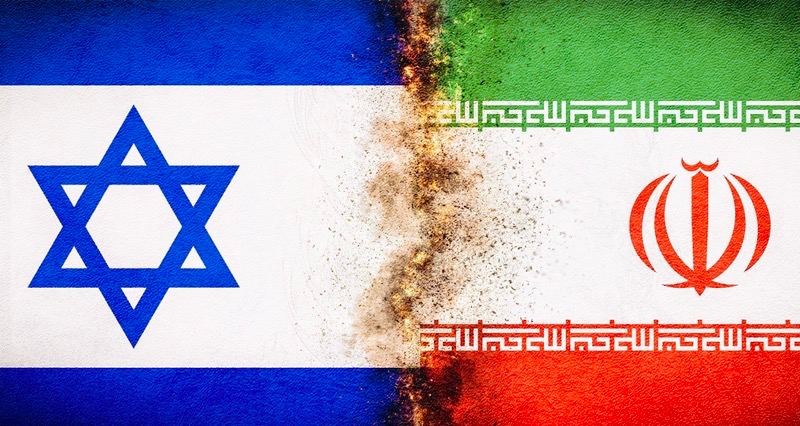By Adem Kılıç, political scientist
Israel’s attacks on critical Iranian military installations over the weekend have been described as an unprecedented “direct attack” between the two countries, and the “cycle of retaliation” between the two regional rivals has reached an unprecedented point.
If this cycle continues, the confrontation will undoubtedly not be limited to Israel and Iran, but will eventually escalate into a wider conflict involving other regional actors and even global powers.
For decades, Iran’s main military strategy has been asymmetric warfare, in which the country uses proxy forces to achieve its goals without engaging its enemies directly.
This indirect approach has allowed Tehran to influence the conjuncture in Lebanon, Syria, Iraq and Yemen, while avoiding a full-scale confrontation with Israel.
The Iranian government, and the Revolutionary Guards in particular, supported Hezbollah in Lebanon, various local groups in Iraq and the Houthis in Yemen in order to counter Israel and its allies without direct retaliation.
In a way, this strategy has been successful, allowing Iran to expand its influence without risking an all-out war.
However, recent developments suggest that this strategy is no longer effective.
Following the Israeli airstrike on the Iranian consulate in Damascus in April, the assassination of Hamas leader Haniyeh in Tehran, and most recently the assassination of Hezbollah leader Nasrallah in Lebanon, Iran has lost much of its deterrence and has dramatically changed its strategy.
In response to these developments, Iran did something it had not done before: it launched a direct attack on Israel with missiles and drones.
This move marked a significant departure from Iran’s decades-long strategy of using proxies to wage war. The launch of hundreds of missiles and drones into Israel showed that Iran was willing to take greater risks.
The dangerous unpredictability of this mutual “cycle of attacks” continues to pave the way for a full-scale war, in which any miscalculation would be beyond the control of either side.
Israel’s direct attack on Iranian territory over the weekend demonstrated Israel’s intention to weaken Iran’s military capability and exposed the impotence of the United States.
The US and European powers will have to closely monitor Iran’s response, and any retaliatory action will now make a war involving the US inevitable.
This is because the US deployed at least 100 American troops to Israel, along with the THAAD air defense systems deployed in Israel before Israel’s latest retaliation against Iran, and US troops will also be targets in the event of an Iranian attack.
Iran’s response will now be closely watched not only by Israel but also by the wider international community.
The first possibility is that Iran downplays Israel’s retaliation and chooses to downplay it rather than escalate the situation.
The second is that if Iran chooses to respond harshly, it could draw the Middle East into a larger and more destructive conflict, trigger a chain reaction and return to its asymmetric warfare strategy, mobilizing all its proxies in the region, including the so-called “Axis of Resistance” groups, to carry out a “controlled retaliation” against Israel.
In such a scenario, Iran would initiate a period of uncertainty as to when or if retaliation would take place, and would seek to gain psychological control by forcing Israel to remain on high alert at all times.
But no matter how carefully a country plans its military actions, the unpredictability inherent in war means that events can quickly spiral out of control.
While no moves will be made before next week’s US elections, ultimately Iran’s response to Israel’s latest attack will now be the “final crossroads” in determining the course of this conflict.

















Leave a Reply